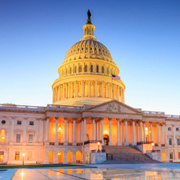CMS Releases Sec. Burwell’s Section 1115 Congress Report

- A report to Congress – The Secretary's First Annual Report on Transparency in the Review and Approval of Section 1115 Demonstration (Amendments to the Social Security Act (SSA) and Title II of this Act) – was recently released by the Centers for Medicare & Medicaid Services (CMS).

This report delivers a wide-ranging record of federal public notice and comment policies applied to state Medicaid and The Children's Health Insurance Program (CHIP) demonstration projects. It additionally features various federal transparency actions taken on state applications for 1115 demonstrations through last September.
Earlier this month, as mandated via the Affordable Care Act (ACA), the Centers for Medicare & Medicaid Services (CMCS) released the first report to Congress with actions taken with respect to demonstration projects submitted via the SSA, explains Medicaid.gov, a federal government managed website by CMS.
Under Section 1115 of the SSA, Sylvia M. Burwell, Secretary of the Department of Health & Human Services (HHS) maintains the authority to authorize those experimental, pilot, or demonstration projects that advance Medicaid and CHIP program goals, confirms Medicaid.gov.
As RevCycleIntelligence.com reported, these approved expenditure authorities allow states to receive federal funds for otherwise unmatched Medicaid expenses via Secretary Burwell’s “broad authority.”
Demonstrations aim to provide states with more program design flexibility via the execution and assessment of various policy approaches, including:
- The expansion of eligibility to those not otherwise eligible for Medicaid or CHIP
- Providing services Medicaid does not generally cover
- Implementing new service delivery systems to advance care, boost efficiency, and save money
According to Medicaid.gov, CMS will use four pieces of general criteria to determine whether or not Medicaid and CHIP program objectives are met. Medicaid.gov defines some of these benchmarks as determining whether or not the demonstration will:
- increase and strengthen overall coverage of low-income individuals in the state;
- increase access to, stabilize, and strengthen providers and provider networks available to serve Medicaid and low-income populations in the state;
- improve health outcomes for Medicaid and other low-income populations in the state; or
- increase the efficiency and quality of care for Medicaid and other low-income populations through initiatives to transform service delivery networks.
Demonstrations must maintain budget neutrality in regard to the Federal government, says Medicaid.gov. Throughout the project’s progression, Federal Medicaid expenditures will not exceed Federal spending sans waiver. Section 1115 demonstrations are typically approved for a preliminary 5-year period which may lead to a later 3-year extension, Medicaid.gov maintains. It is common for states to request and receive an additional 3-year extension.
“Certain demonstrations that have had at least one full extension cycle without substantial program changes will be eligible for CMS’ ‘fast track’ review process for demonstration extensions,” states Medicaid.gov. Under the ACA, public commentary and increased transparency opportunities regarding the section 1115 demonstration projects are welcomed.
Says Medicaid.gov, “The rule ensures that the public will have an opportunity to provide comments on a demonstration while it is under review at CMS. At the same time, the final rule ensures that the development and review of demonstration applications will proceed in a timely and responsive manner.”
There will be a 30-day long public and stakeholder Federal comment period with CMS continuing to accept (but not necessarily consider) comments after the commentary period has ended. CMS “strongly" encourages commentary submission within the 30-day window.
